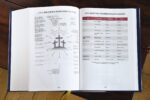A Better Understanding of Biblical Joy

On the twenty-third day of the seventh month he sent the people away to their tents, joyful and glad of heart for the good that the Lord had done for David, for Solomon, and for His people Israel. 2 Chronicles 7:10 NKJV
3 Hebrew Word Studies on Joy
Sameach: The joy the people felt was more than just a spontaneous subjective emotion – it was rooted very concretely in all “that the LORD had done for David, Solomon, and for His people Israel.” Indeed, the Feast of Tabernacles was intended as a time of rejoicing for all the ways the Lord had blessed His people (Deut. 16:15). The people were filled with “great joy” at Solomon’s coronation (1 Kin. 1:40). Haman’s joy at his plot to kill Mordecai (Esth. 5:9, 14) backfired when he was executed instead, “and the city of Shushan rejoiced and was glad” (Esth. 8:15). But more often, joy is connected directly to God: “The Lord has done great things for us, and we are glad.” (Ps. 126:3).
Simchah: This Hebrew word is one of several frequently occurring Hebrew words that express exceeding gladness of rejoicing. Like its synonyms, this word can apply to a disposition of heart (Prov. 14:10; Jer. 15:16). It is frequently set in a context of feasting (Neh. 8:12) and singing (1 Sam. 18:6; Ps. 137:3), as it is in a prophecy concerning God’s singing over Jerusalem (Zeph. 3:17). The word is also used for the senseless happiness of the enemies of God’s people (Judg. 16:23; Ezek. 35:15; 36:5), of the foolish (Prov. 15:21), of the lazy (Prov. 21:17), and of the hypocrites (Job 20:5). However, joy in the Bible is usually associated with the people of God who celebrate God’s blessing at a number of occasions – feasts, coronations of kings, victories in battle, and the dedication of the rebuilt walls of Jerusalem (Num. 10:10; 1 Kin. 1:40; 2 Chr. 20:27; Neh. 12:27). In fact, Moses exhorts the Israelites to serve God with joy, so that they would not lose their blessing (see Deut. 28:47).
Gil: A somewhat rare form that is more familiar to us as rejoice (1 Chr. 16:31, Ps. 2:11; 21:1; 51:8; Prov. 23:24-25). In Isaiah, when the prophet has already declared he will rejoice, but wants to emphasize his response to God, this term offers that direct form of exultation.
Which Hebrew word would you use to describe the joy you feel about the Lord Jesus?


















